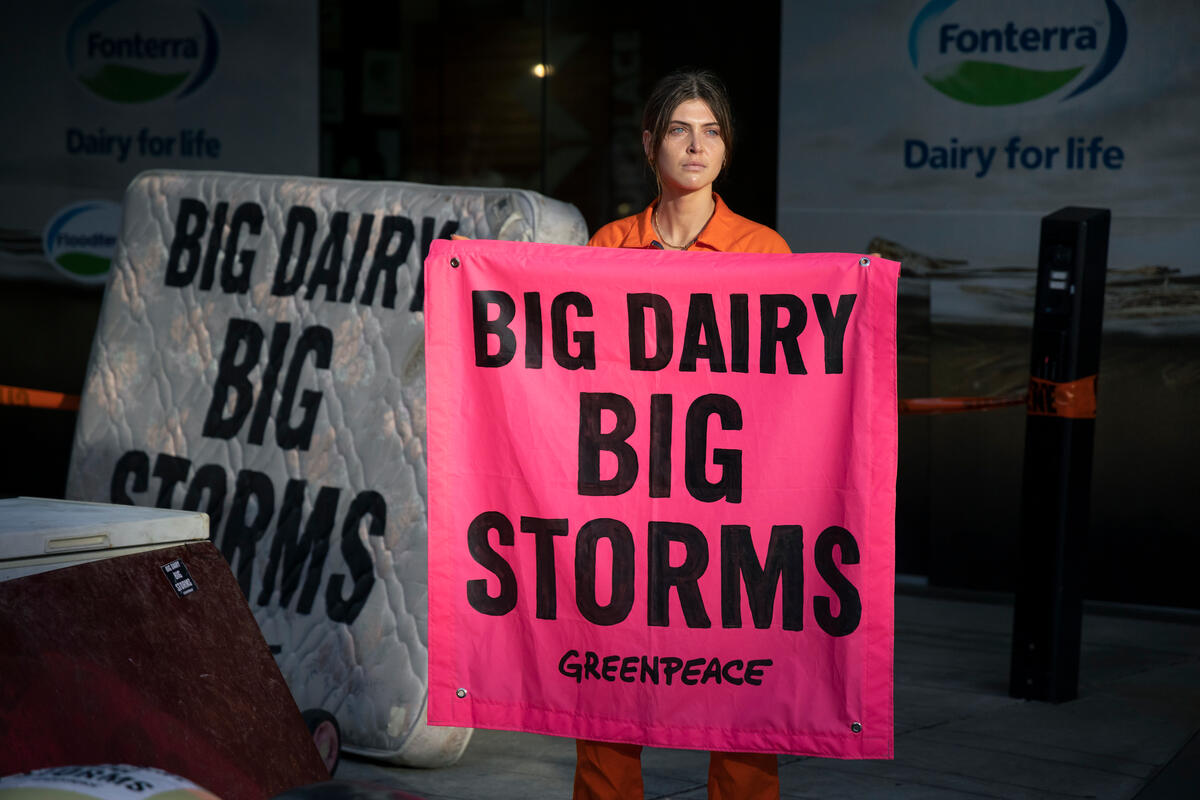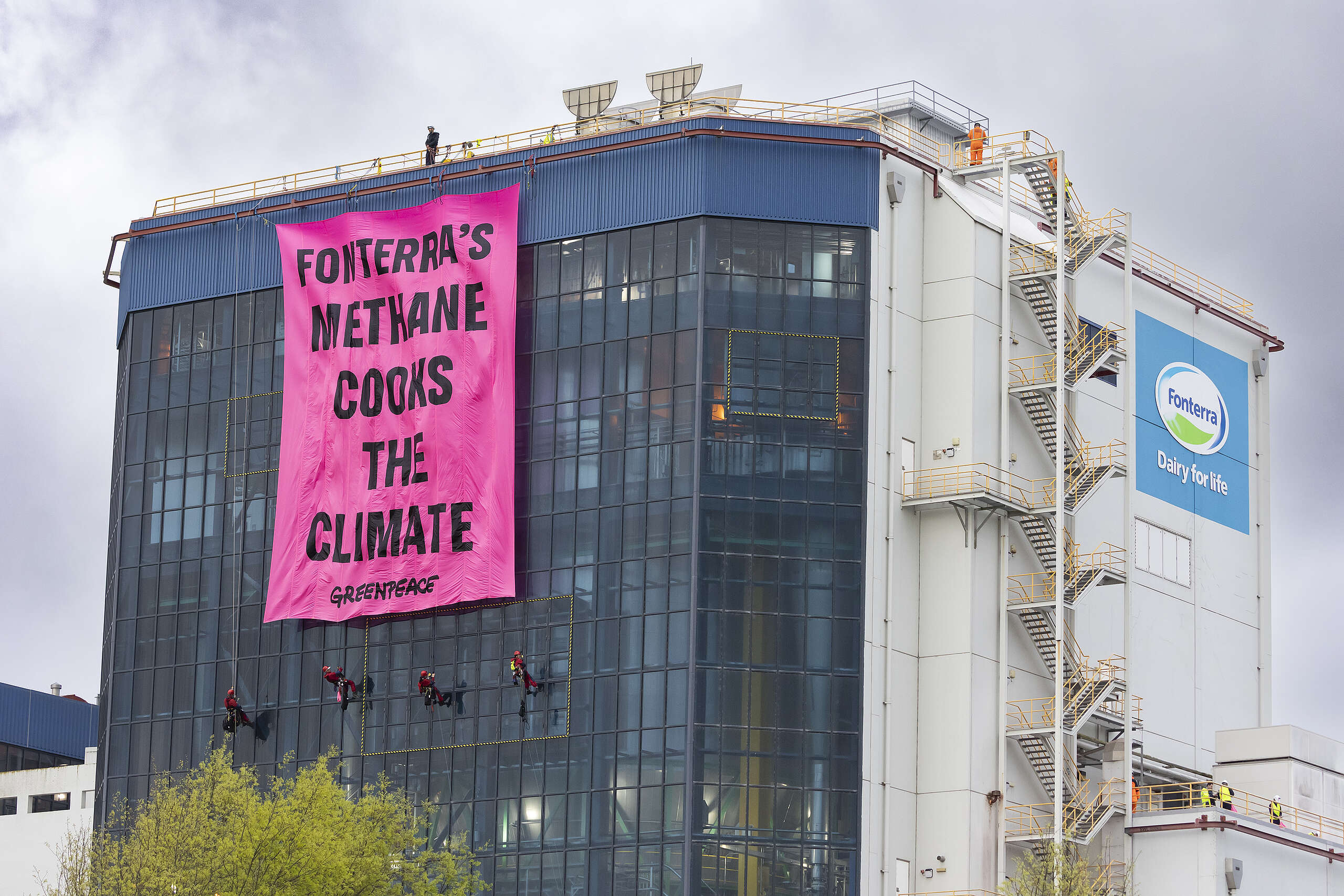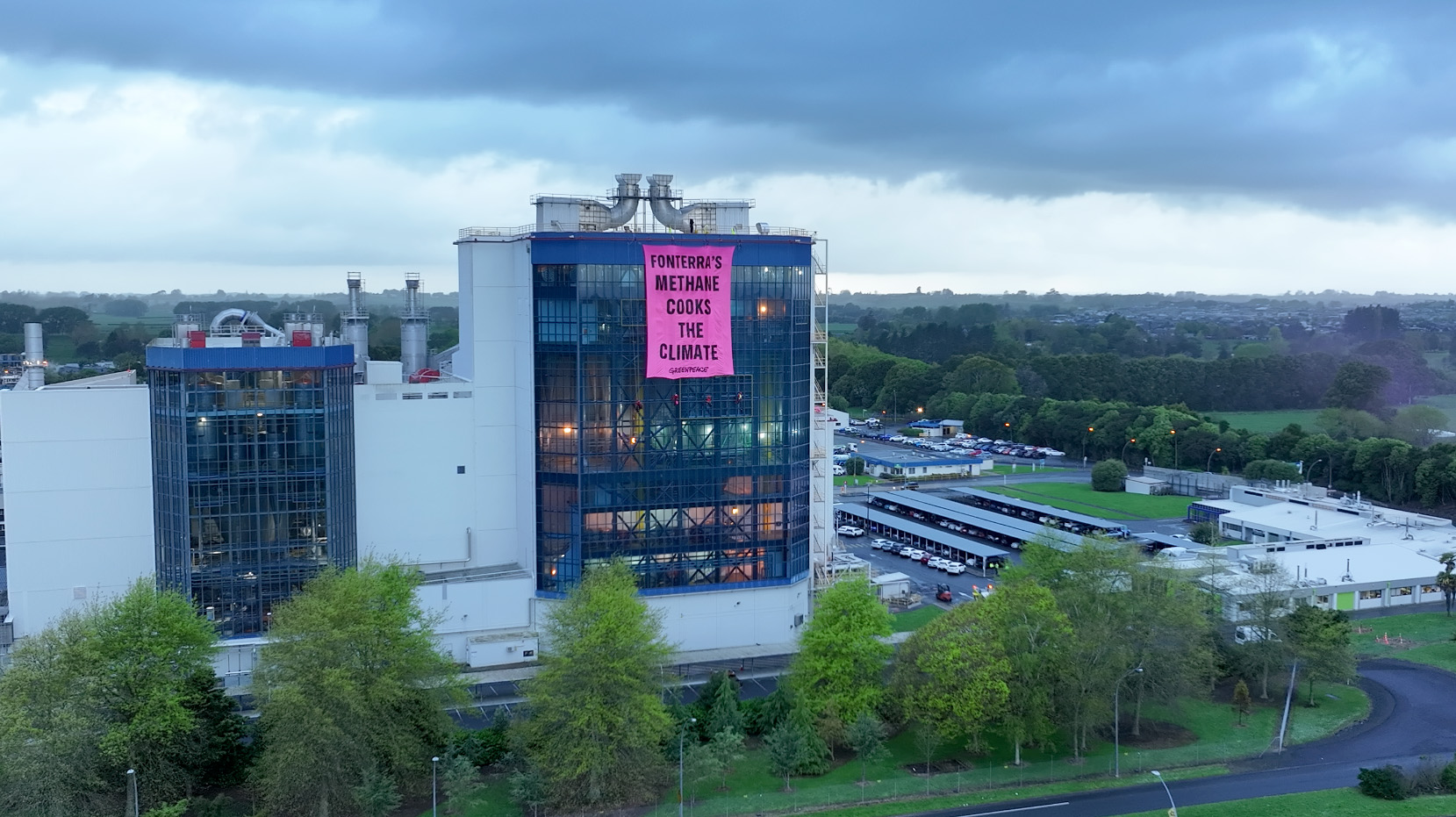Greenpeace Aotearoa is calling on the Luxon Government to stop the rollback of freshwater protections following the release of the Ministry for the Environment’s Our Land 2024 report.
Greenpeace spokesperson Amanda Larsson says, “Rivers, wetlands, lakes, forests and the wildlife that depend on them are in a dire state. However the Luxon Government intends to remove crucial environmental protections and fast-track the expansion of the very industries causing this damage.
“The Our Land 2024 report confirms that intensive agriculture, particularly from dairy farming, is continuing to put pressure on fragile lakes and rivers. Everyone should be able to take a dip in their local river without worrying about getting sick, but many rivers across Aotearoa are unsafe to swim in because of pollution from intensive dairying.”
The report shows that agriculture, particularly the growth in intensive dairy farming over the last three decades, is putting significant strain on soils, freshwater, and biodiversity. It forecasts that this intensification could continue in response to global population growth and demand for livestock products.
The report also notes that this is not the only way to farm. It is possible to farm in ways that nurture soils, restore freshwater health, reduce climate pollution, and encourage wildlife. The report also notes that overseas markets are putting growing pressure on the New Zealand agriculture industry to deliver more environmentally friendly products.
“The Luxon-led Government’s policies to roll back existing freshwater protections and fast-track new developments like irrigation dams and mega dairy farms by bypassing environmental regulations will accelerate this trend of alarming environmental decline,” says Larsson.
“The vast majority of New Zealanders care about nature. Environmental regulations exist for a reason – to protect the places we care about and things we depend on like clean drinking water, healthy, swimmable lakes and rivers, and a stable climate.”
Greenpeace is particularly concerned about the high prevalence of intensive dairying in the Canterbury region, with the Our Land report showing that 11,630 hectares of riverbed and riparian margins across 20 of Canterbury’s braided rivers had been converted to agricultural use between 1990 and 2012. The organisation says that the impacts of this land use conversion on water quality in Canterbury are yet to be fully realised.
“Intensive dairying in Canterbury is not only contaminating lakes and rivers but also polluting rural people’s drinking water with nitrate – which emerging evidence shows has potential health risks including bowel cancer and preterm birth,” says Larsson.
“The impacts of nitrate contamination of drinking water take many years to become visible. It’s going to get worse before it gets better, which is why it’s all the more important that we stop the pollution at the source now rather than later.”
Greenpeace recently announced that it will be running free water testing for nitrate contamination in North Canterbury from April 19th-21st, and is calling on Christopher Luxon to stop the rollback of freshwater protection.



